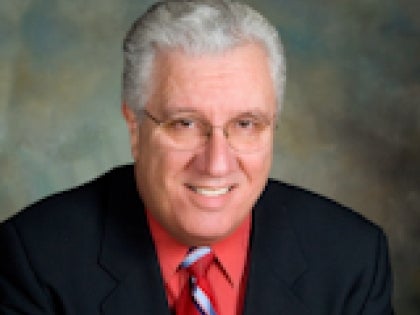
Senator Marcellino Announces Historic Plan To Fight Medicaid Fraud
Senator Marcellino and members of the Senate Majority Conference today unveiled the toughest, most comprehensive plan to combat Medicaid fraud in the United States. The Medicaid Fraud Prevention and Recovery Reform Act of 2006 is a 10-point plan that would fight fraud and abuse at every step of the process, from billing and pre-payment review to investigation, civil recovery and criminal prosecution of Medicaid thieves. The bill was reported out of the Senate Health Committee today and will be acted on by the Senate, in budget legislation and as separate legislation, next week.
"There are estimates out there that billions of dollars per year goes down the drain because of Medicaid fraud. That has to end because it is hurting every single taxpayer in this state, and it takes away resources from the truly needy," said Senator Marcellino. "This plan will make sure that we end the fraud and abuse. We want to make sure we get the most of what we spend to help those who have the least get the quality of care they deserve."
The Medicaid Fraud Prevention and Recovery Reform Act of 2006 includes similar reforms enacted in Texas, that provided immediate results. In the first year after enacting Medicaid reform, Texas increased the amount of money recovered from Medicaid fraud by 30 percent, without incurring any additional expense. Texas, now, annually recoups five percent of its total Medicaid expenditures. Applying the results in Texas to New York’s $46 billion Medicaid program, would result in annual savings of $2.3 billion for the program and provide relief for State and local taxpayers.
The Senate anti-Medicaid fraud plan includes:
> Creating a new, independent, Office of Medicaid Inspector General by consolidating responsibilities and staff from eight agencies into one new office within the Department of Health;
> Referring fraud cases to local district attorneys if a case is refused by the Medicaid Fraud Control Unit in the Attorney General’s office;
> Allowing local governments and district attorney offices to share in Medicaid fraud recoveries if they provide information or evidence of fraud;
> Increasing civil and criminal penalties for people who commit Medicaid fraud;
> Requiring all health care institutions to implement corporate compliance and internal controls programs;
> Requiring the State Insurance Department to submit an annual report of health insurance fraud cases submitted by health plans;
> A $500,000 appropriation for the New York Prosecutors Training Institute to conduct an educational program on Medicaid fraud for local district attorneys;
> Authorizing the Department of Health to upgrade information technology to detect Medicaid fraud;
> A demonstration project in Chemung County using the latest technology to detect Medicaid fraud; and
> Adopting a State False Claims Act that would allow the State to collect 10 percent of the federal share of any recoveries made under the Act.
The federal General Accounting Office estimates that 10 percent of Medicaid expenses are diverted through fraud, an amount equal to billions of dollars spent by New York on the program.
The comprehensive Senate Medicaid fraud plan was developed after statewide public hearings held by the Senate Medicaid Reform Task Force. At the hearings, the task force received input and suggestions from people in the health care industry and the law enforcement community on what could be done to strengthen the state’s efforts to detect and prevent Medicaid fraud.



